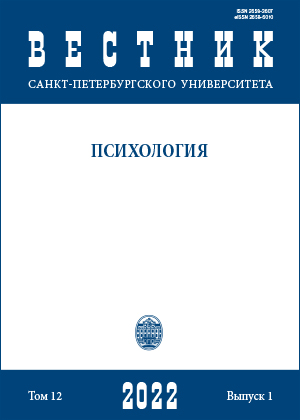Origins of Leningrad (St Petersburg) school of psychology of aging in works of B.G.Ananiev and M.D.Alexandrova
Abstract
This article explores the origins and foundations of the Leningrad / Petersburg school of the psychology of aging. The historical perspective of the development of the ideas of the psychology of aging from the global trends that existed at the beginning of the 20th century is presented, the general prerequisites for the emergence of the Leningrad / Petersburg approach to understanding the aging process in general, as well as the basic principles of the Leningrad / Petersburg school of the psychology of aging that have arisen on their basis are shown. The world psychology of aging began with the deficit paradigm of aging, which accepts involutionary processes as the norm of ontogenesis. At the same time, developmental psychology did not perceive the aging period as a period of human development. B.G.Ananyev, having analyzed and systematized the existing data and views on human ontogenesis, put forward the idea of the integrity of human development and the continuity of processes. Based on these ideas, M. D.Alexandrova first empirically confirmed these ideas using the example of sensory-perceptual functions, and then expanded the area of her scientific interests to the human ability to work. These studies led her to the conviction that the aging period is a period with its own resources and potentials, the activation of which will depend not only on the current situation, but also on the previous period of development. She also demonstrated the ambiguity and variability of developmental periods. The work shows that the proposed ideas were not only advanced for their time, but in many ways were ahead of their time. It was shown that the main idea of the Leningrad / Petersburg school of psychology of aging can be characterized as a constructive — positive approach to understanding aging processes, focused on human potentials and resources. It was shown that the ideas suggested by B. G.Ananyev and M. D.Alexandrova, continue in the works of their students and followers, who share and develop these ideas.
Keywords:
Leningrad school of psychology of aging, psychology of aging, resourceful approach to aging, M. D.Alexandrova
Downloads
References
References
Downloads
Published
How to Cite
Issue
Section
License
Articles of "Vestnik of Saint Petersburg University. Psychology" are open access distributed under the terms of the License Agreement with Saint Petersburg State University, which permits to the authors unrestricted distribution and self-archiving free of charge.




